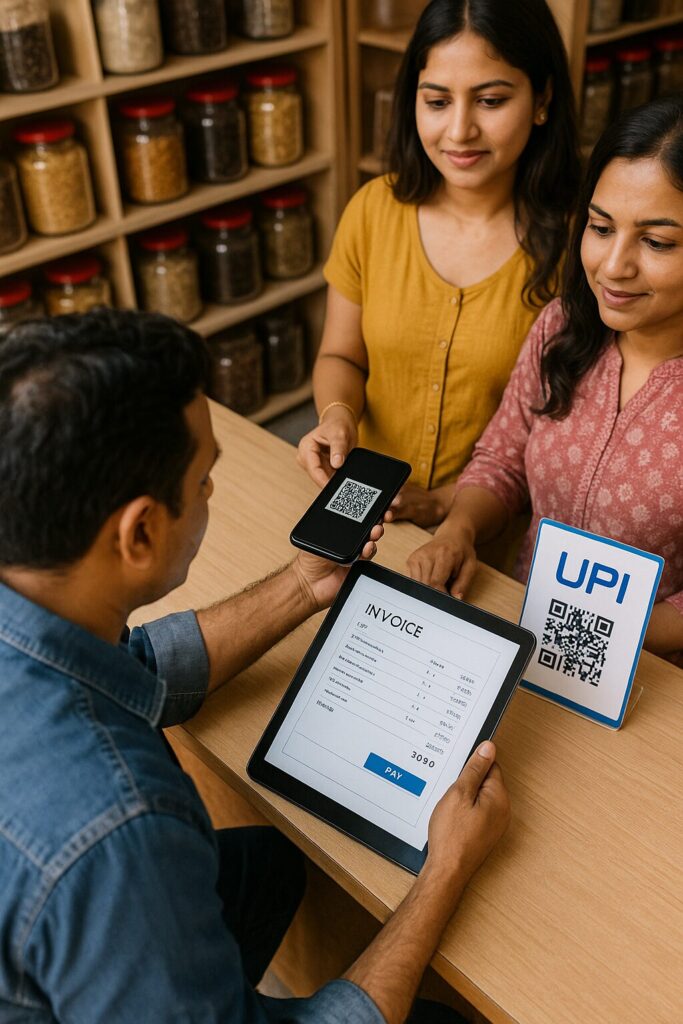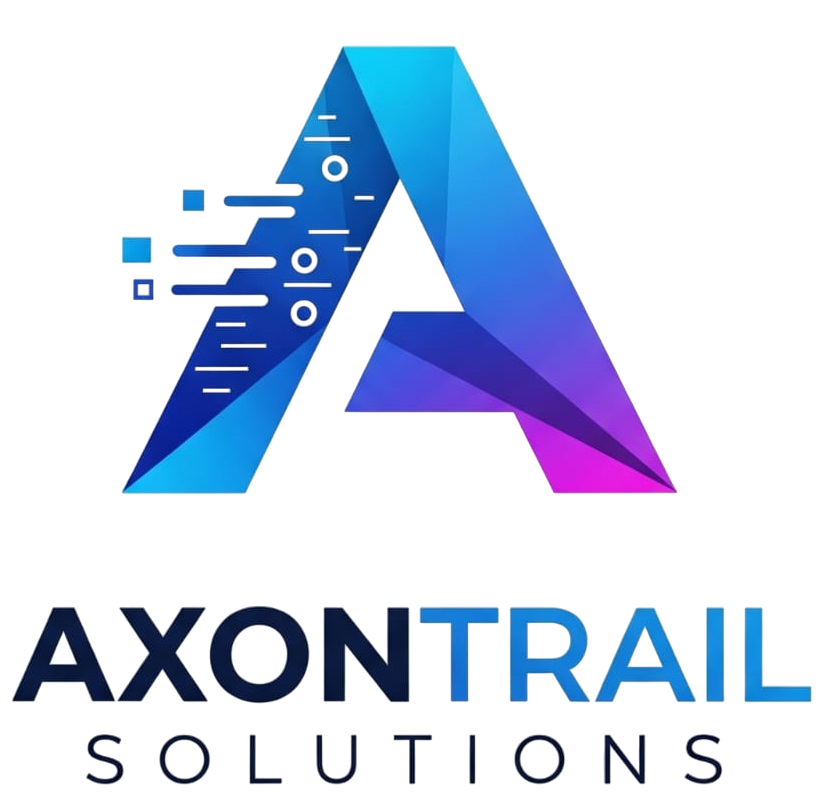
- July 8, 2025
- AxonTrail Editorial Team
- 0
Table of Contents
ToggleTop 5 Benefits of Using a Smart Billing System for Small Businesses
1. Introduction
In the bustling world of small enterprises, where time is scarce and margins tight, adopting a smart billing system for small businesses can revolutionise the way you manage finances. No longer will you be chained to manual invoicing or haunted by late payments. Instead, a truly smart billing system for small businesses operates quietly in the background, automating tasks that once consumed precious hours.
Whether you run a boutique design studio, a cosy café in the suburbs, or a niche consultancy, the promise of a smart billing system for small businesses lies in its capacity to eliminate errors and expedite payments. From automatic invoice generation to seamless payment integrations, this software transforms invoices from administrative burdens into strategic assets. Embracing a smart billing system means you can devote your energy to growth rather than bookkeeping.
In 2025, the landscape has shifted. Customers expect transparent, real-time billing interactions. Governments mandate digital GST filings and e-invoicing compliance. A smart billing system for small businesses is no longer optional—it is a necessity for any organisation that seeks to thrive amid competition and regulatory complexity. This article unveils the top five benefits of implementing such a solution and guides you on how to integrate one seamlessly into your operations.
2. Who Should Consider a Smart Billing System?
Understanding who stands to gain from a smart billing system is key. If your venture issues multiple invoices every month, juggles different payment methods or struggles with delayed receipts, you fit the profile. Freelancers who work on hourly or project-based fees often waste hours on manual entries. Local retailers manage diverse sales channels that complicate reconciliation. Even professional services—such as legal, accounting or marketing firms—benefit hugely when invoicing becomes automated.
Similarly, any small enterprise facing a backlog of uncollected payments, disputes or errors in tax calculations will find relief. Those who prepare for digital audits or must comply with e-invoicing mandates can rest assured: a smart billing system for small businesses automates GST calculations and e-invoice submissions directly to the government portal. The typical owner or finance manager can then shift focus from chasing numbers to analysing trends.
Subscription-based models and service agreements, too, reap rewards. Recurring invoices, such as monthly retainers or membership fees, flow out without manual intervention when underpinned by a smart billing system for small businesses. Customers receive timely reminders and easily settle dues online. This reliability builds trust and fosters repeat business. In essence, any organisation that values operational efficiency and enhanced cash flow is an ideal candidate for a smart billing system for small businesses.
3. What Is a Smart Billing System for Small Businesses?
At its essence, a smart billing system for small businesses is a cloud-hosted application that streamlines every aspect of invoicing and payment collection. Unlike static spreadsheets or standalone accounting tools, it offers integrated features: automated invoice creation, secure payment links, real-time tracking and seamless reconciliation.
Key functionalities include templated invoices branded to reflect your company identity, dynamic fields for taxes and discounts, and scheduled dispatch at pre-defined intervals. You can embed UPI QR codes or “Pay Now” buttons directly within emails. By choosing a smart billing system for small businesses, you ensure that every invoice adheres to locale-specific tax rules and compliance standards.
Beyond core billing, these systems provide comprehensive analytics dashboards. You gain insights into receivables ageing, client payment patterns, cash-flow projections and performance benchmarks. An advanced smart billing system for small businesses even employs predictive algorithms to forecast late payments and alert you about potential shortfalls.
Moreover, modules for credit-note issuance, dispute management and partial payments mean that complex scenarios no longer derail your accounting. Through APIs, your smart billing system can integrate with ERP, CRM, banking feeds and e-commerce platforms, creating a unified financial ecosystem.
4. Top 5 Benefits of a Smart Billing System for Small Businesses
4.1 Dramatic Time Savings
One of the most immediate advantages of a smart billing system for small businesses is the dramatic reduction in time spent on invoicing tasks. Manual entry of client details, invoice numbers and billing amounts can occupy hours each week. Conversely, with automated invoice generation, you set up templates once, specify the schedule and let the system do the heavy lifting.
Imagine dispatching hundreds of invoices in a few clicks, or auto-populating tax calculations based on pre-configured rules. A smart billing system for small businesses supports bulk actions, enabling you to attach supporting documents, apply uniform terms and email or SMS invoices en masse. Notifications inform you the moment a client opens an invoice, minimising guesswork and follow-up burdens.
Ultimately, these efficiencies free up valuable time, allowing business owners and finance teams to concentrate on strategic tasks—like optimising pricing, expanding services or enhancing customer relationships—instead of sifting through ledger entries. By leveraging a smart billing system for small businesses, you shorten billing cycles and reclaim hours to invest back into growth initiatives.
4.2 Faster Payments and Improved Cash Flow
Late payments can cripple small enterprises, leading to cash crunches and stalling operations. A smart billing system addresses this by embedding clear payment options directly within each invoice. Whether through UPI, credit-card gateways or net banking, clients can settle dues swiftly via a simple click or scan.
Beyond instant payment links, automated reminder sequences nudge customers at pre-defined intervals—first a friendly note, then an increasingly urgent alert if due dates slip. Early-payment incentives, such as small discounts for settlement within seven days, are configurable within the smart billing system, encouraging prompt action.
These capabilities reduce your days-sales-outstanding (DSO) significantly. With a smart billing system, your receivables cycle shrinks, funds flow more predictably and you gain the confidence to plan investments, stock replenishment and payroll without fear of delayed cash inflows.
4.3 Iron-Clad Accuracy and Compliance
Errors in billing, taxation and data entry can expose small firms to penalties or customer dispute. A smart billing system for small businesses enforces data validation rules at every step—mandatory fields, format checks and duplication alerts—ensuring invoices are accurate and compliant.
In jurisdictions such as India, GST calculations involve multiple components and cess requirements. The system’s automated tax engine applies correct rates, reverse-charge logic and rounding rules seamlessly. When e-invoicing is mandated, your smart billing system generates IRN-compliant documents and pushes them to the GST portal without manual intervention.
Furthermore, digital audit trails record each action—invoice creation, amendment and payment—complete with timestamps and user identifiers. This immutable log empowers you to demonstrate compliance and streamline audits, knowing that your smart billing system maintains an unbroken chain of accountability.
4.4 Actionable Financial Insights
Beyond basic invoicing, a smart billing system for small businesses transforms raw billing data into strategic insights. Interactive dashboards present ageing reports, cash-flow forecasts and top-debtor lists, allowing you to focus on areas that require attention.
Predictive analytics modules within these systems extrapolate payment patterns and macro trends to forecast cash shortages before they occur. With the foresight provided by a smart billing system for small businesses, you can negotiate vendor terms, adjust credit policies and secure bridge financing proactively.
Custom report builders let you segment data by client, region or service line, uncovering opportunities to refine pricing models or retire underperforming offerings. Armed with intelligence from your smart billing system for small businesses, your decisions become both nimble and data-driven.
4.5 Enhanced Professionalism and Client Experience
How you invoice reflects your brand. A smart billing system for small businesses offers fully customisable templates, allowing you to embed logos, personalised messages and payment instructions. This polish signals professionalism and builds trust from the very first touchpoint.
Clients appreciate transparency and convenience. Self-service portals give them the autonomy to view, download and pay invoices on demand. Multi-language support and multi-currency invoicing cater to global customers. By prioritising user experience through a smart billing system for small businesses, you foster stronger client relationships that translate into repeat business.
Automated acknowledgements, payment receipts and thank-you notes further humanise the billing cycle. Small gestures, like SMS confirmations or email summaries, elevate your service. When your smart billing system for small businesses handles these interactions flawlessly, your customers remember the positive experience.
5. How to Choose and Implement a Smart Billing System for Small Businesses
Selecting the right smart billing system for small businesses begins with a clear assessment of your invoice volume, payment methods and compliance needs. List the features that matter most—automated tax calculations, UPI integration, recurring invoices—and prioritise providers that specialise in your industry or geography.
Next, pilot your chosen smart billing system for small businesses with a small cohort of users, gathering feedback on usability and performance. Offer guided training sessions, create process documentation and designate power users to champion adoption across your organisation.
Once the system proves its worth, integrate it into your ERP, CRM or inventory management platforms via APIs. Monitor key performance indicators—DSO, billing-cycle time and error rates—using the system’s analytics dashboards. Regularly review these metrics to optimise configurations, workflows and customer communications.
6. Conclusion
In conclusion, adopting such an automated billing solution marks a pivotal evolution in how modern enterprises manage their finances. By automating routine tasks, ensuring tax compliance, expediting payments, and providing actionable insights, this approach liberates business owners from manual drudgery. Time once lost on invoice formatting and error correction becomes available for strategic endeavours—growing your customer base, innovating service offerings or expanding into new markets.
In an increasingly digital economy, clients come to expect seamless, transparent billing experiences, and organisations that can deliver them gain a definitive competitive edge. If you’re ready to transform your billing processes and elevate your professional image, consider partnering with AxonTrail.com. Their tailored solutions for small enterprises combine cutting-edge automation with robust analytics, ensuring that your business not only survives but thrives in the years ahead.
Frequently Asked Questions
What exactly is a smart billing system?
A cloud-based platform that automates invoice creation, dispatch, payment collection and reporting, combining billing, compliance and analytics in one solution.How does a smart billing system improve cash flow?
It offers instant payment links, automated reminders and early-payment incentives, reducing the time it takes for clients to settle invoices.Can small businesses afford a smart billing system?
Many providers, including AxonTrail.com, offer modular, pay-as-you-grow pricing. Government subsidies under the Digital MSME Scheme may also apply.Is my data secure with a cloud-based billing solution?
Yes. Leading systems employ bank-grade encryption, two-factor authentication and ISO 27001-certified data centres to safeguard your information.Does a smart billing system handle GST and e-invoicing?
Absolutely. It auto-calculates GST, generates IRN-compliant e-invoices, and integrates directly with the GSTN portal for seamless filing.How steep is the learning curve?
Most small-business owners find the interface intuitive. Vendors typically provide onboarding support, tutorials and customer success teams.Can I customise invoice templates?
Yes. You can brand templates with your logo, colours, terms and digital signature to maintain a consistent, professional look.What types of businesses benefit most?
Any entity that regularly issues invoices—service providers, retailers, manufacturers or subscription-based ventures—will see significant gains.How do analytics help my decision making?
Real-time dashboards and predictive forecasts empower you to anticipate cash shortages, identify top-paying clients and adjust credit terms proactively.Why choose AxonTrail.com?
AxonTrail.com specialises in solutions for Indian MSMEs, offering end-to-end compliance, blockchain-backed audit trails and AI-powered insights—all designed to accelerate growth.

